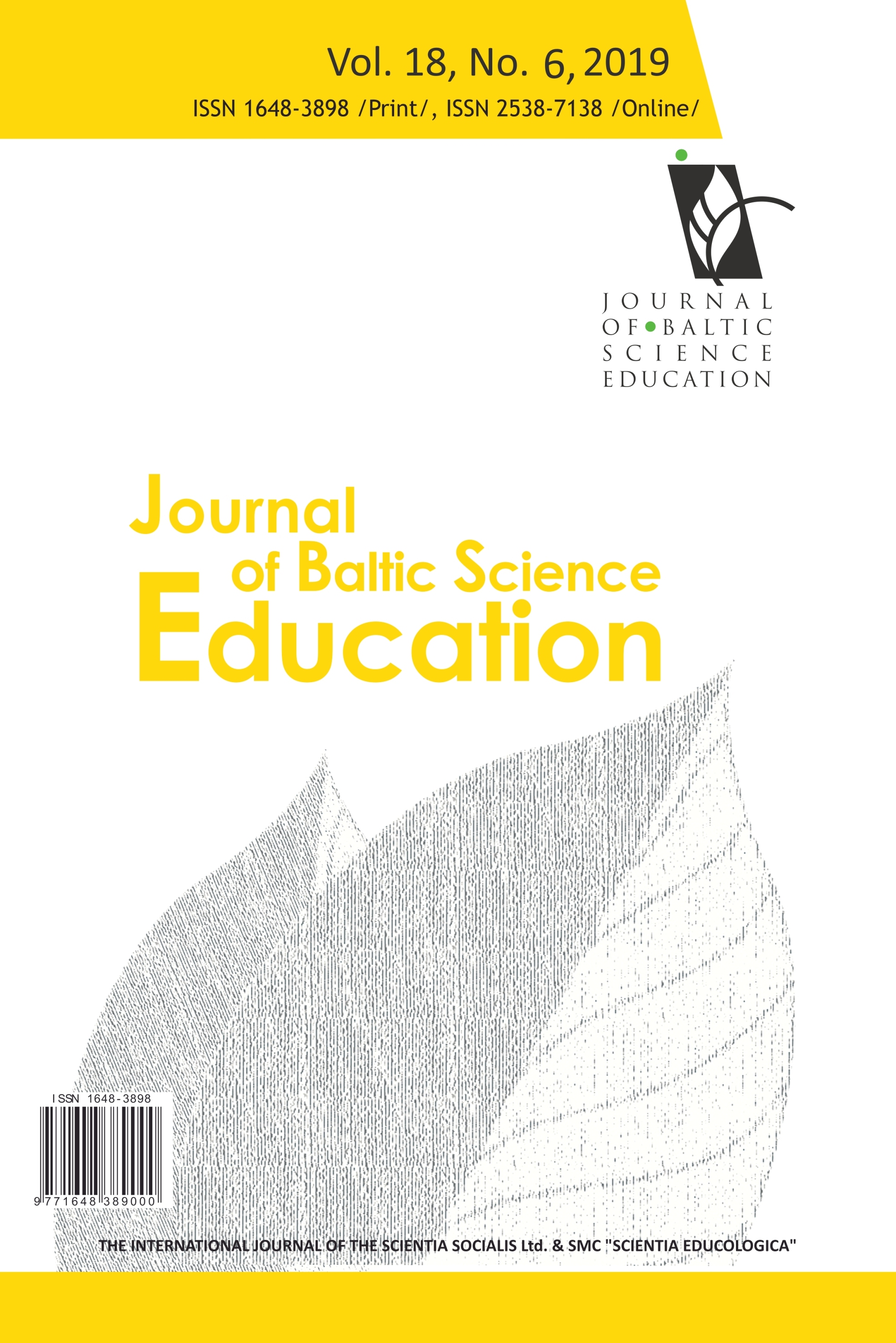EXAMINING THE EFFECTIVENESS OF SIMULATION-BASED LESSONS IN IMPROVING THE TEACHING OF HIGH SCHOOL PHYSICS: GHANAIAN PRE SERVICE TEACHERS’ EXPERIENCES
EXAMINING THE EFFECTIVENESS OF SIMULATION-BASED LESSONS IN IMPROVING THE TEACHING OF HIGH SCHOOL PHYSICS: GHANAIAN PRE SERVICE TEACHERS’ EXPERIENCES
Author(s): Elizabeth Darko Agyei, Thuthukile Jita, Loyiso JitaSubject(s): Social Sciences, Education, School education
Published by: Scientia Socialis, UAB
Keywords: high school physics; ICT; interactive teaching; pre-service teachers; simulation-based lessons
Summary/Abstract: Teacher-dominated approach is still the most adopted teaching strategy in Ghanaian high schools despite the Government of Ghana’s initiatives to support technology-oriented, learner-centred and interactive teaching practices. This study examined the effectiveness of simulation-based lessons in improving the teaching of high school physics by adapting the five dimensions for meaningful learning with information and communication technology model by Howland, Jonassen and Marra (2012) as a theoretical lens. Using an explanatory case study design, eight pre-service physics teachers from the University of Cape Coast, Ghana were engaged to develop and design simulation-based physics lessons in design teams and enact these lessons among themselves in microteaching sessions. Results showed that the simulation-based lessons were effective in that the pre-service teachers’ teaching practices improved to be learner-centred and interactive. The results also suggested that although a combination of all the dimensions of meaningful learning was key to the effectiveness observed with each of the simulation-based lessons, the Cooperative dimension was found to possess a unique potential for sustaining the other dimensions in order to facilitate improvements in the teaching of physics with simulations.
Journal: Journal of Baltic Science Education
- Issue Year: 18/2019
- Issue No: 6
- Page Range: 816-832
- Page Count: 17
- Language: English

